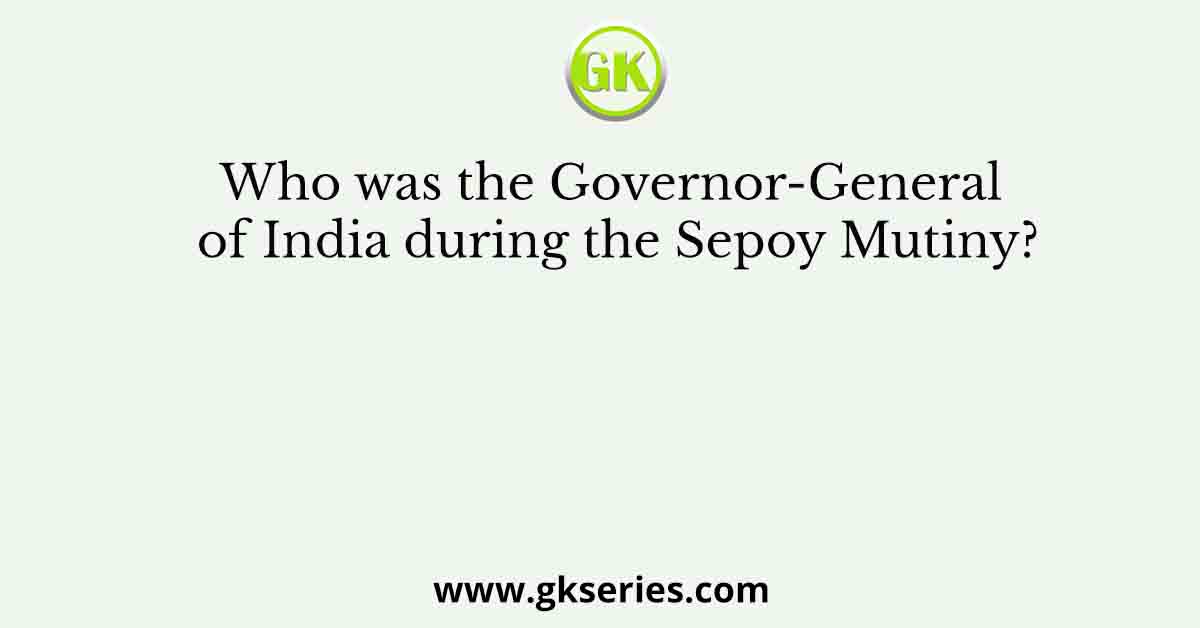
Q. Who was the Governor-General of India during the Sepoy Mutiny?
(a) Lord Canning
(b) Lord Dalhousie
(c) Lord Hardinge
(d) Lord Lytton
Ans: (a) Lord Canning
The correct answer is (a) Lord Canning.
Explanation:
Lord Canning was the Governor-General of India during the Sepoy Mutiny, also known as the Indian Rebellion of 1857 or the First War of Independence. The Sepoy Mutiny was a significant uprising against British rule that took place in various parts of India between 1857 and 1858.
Lord Canning served as the Governor-General of India from 1856 to 1862, and he was in office when the Sepoy Mutiny broke out in 1857. He played a crucial role in managing the crisis and taking measures to suppress the rebellion.
Lord Dalhousie was the Governor-General of India prior to Lord Canning, from 1848 to 1856, and he is known for his aggressive policies of annexation and modernization.
Lord Hardinge served as the Governor-General of India from 1910 to 1916 and was not in office during the Sepoy Mutiny.
Lord Lytton, also known as Lord Dufferin, served as the Governor-General of India from 1884 to 1888 and was not in office during the Sepoy Mutiny.
Therefore, the correct answer is (a) Lord Canning.





